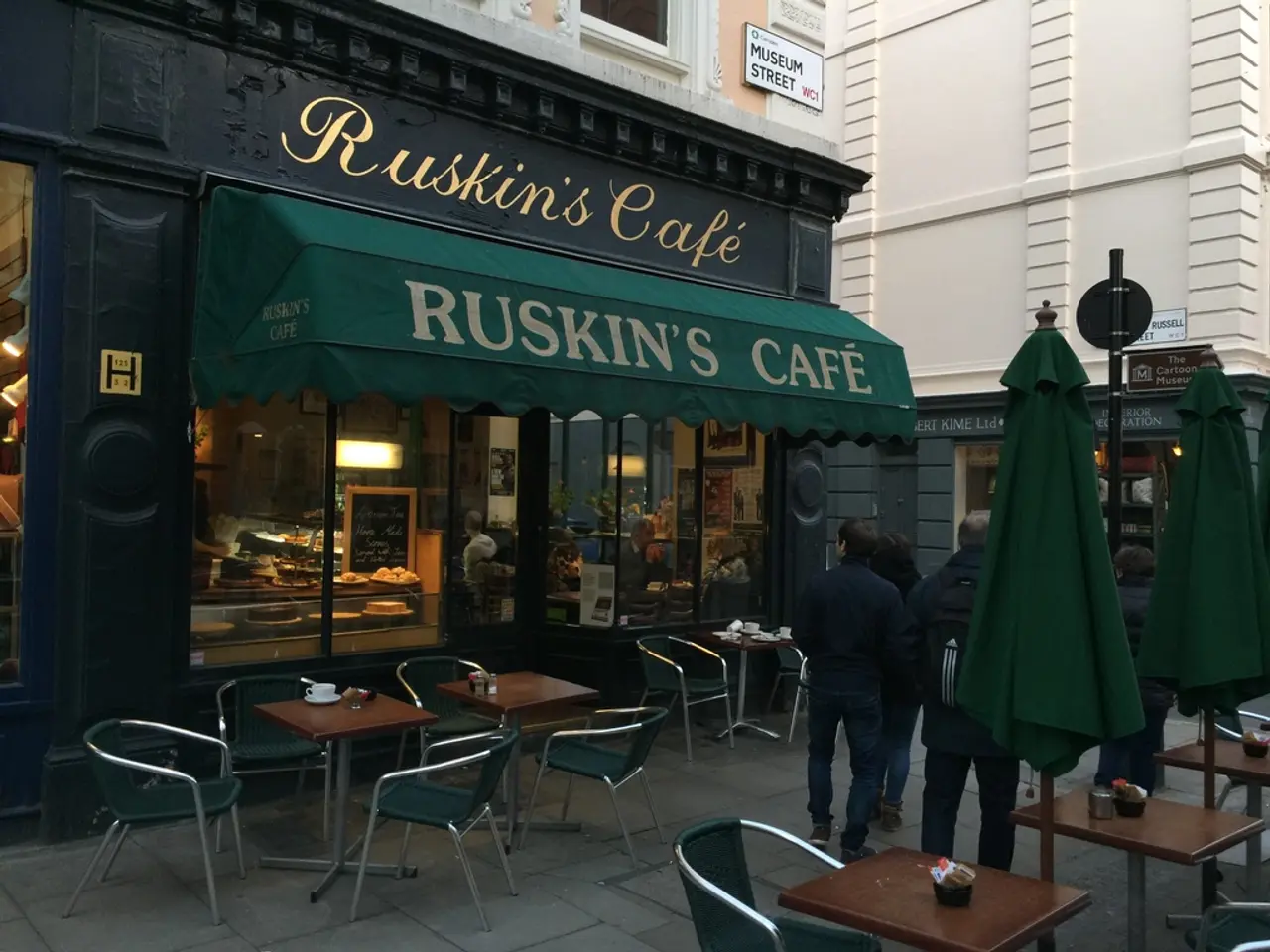Gen Z Koreans Choose Study Cafes Over Offices: Insight into the Preference for Third Spaces
In the bustling cities of South Korea, particularly Seoul, a new trend is emerging among the trend-conscious Generation Z (Gen Z). These young individuals are flocking to study cafes, transforming urban life and work culture in the process.
Study cafes, with their carefully curated interiors and photo-friendly decor, are becoming the preferred alternative to traditional workplaces for Gen Z. These establishments offer more than just a cup of coffee; they provide a productive environment outside the home, affordable access to caffeine, and a space that caters to the social and psychological aspects of Gen Z's lifestyle and values.
Remote Work and Study Trends
As more Korean companies allow or require remote work, Gen Z students and young workers are turning to cafes as third places to work or study. Starbucks South Korea has observed users setting up desktops and printers in cafes, reflecting this shift.
Affordability and Convenience
Study cafes provide cost-effective access to coffee and a quiet, well-equipped space that appeals to Gen Z’s budget constraints and desire for convenience. The rising popularity of ready-to-drink coffee, preferred by Gen Z for its convenience and affordability, indicates that coffee culture harmonizes with study cafe use.
Social Motivations and Lifestyle Habits
Gen Z frequently explores new cafes and values social environments that motivate them to spend time out while still being productive. Their interest in ethical and eco-friendly consumption suggests that cafes that align with these values may attract more Gen Z customers.
Transformation of Cafes into Informal Co-working Spaces
With workers and students increasingly using cafes as remote offices ("cagongjok"), traditional cafe atmospheres shift from leisure to productivity hubs. This trend reflects broader labor market changes as companies re-evaluate office space needs and promotes flexible work styles.
Tensions Between Cafe Owners and Long-staying Customers
However, this shift towards remote work has also created tensions. Some cafe owners complain about "electricity thieves," highlighting conflicts over resource use and business models, as patrons may spend hours working on minimal orders, pressuring cafes to balance efficiency and customer needs.
Urban Social Spaces and Work Culture Integration
Study cafes blur boundaries between private, public, and professional life, embedding work habits into social and urban spaces and fostering a culture of "working while socializing" in Korea’s dense urban environments.
In summary, study cafes thrive among Korean Gen Z due to lifestyle demands for productive yet accessible spaces linked closely to evolving work habits and coffee consumption patterns, reshaping urban and work cultures by driving flexible, hybrid usage of urban social spaces. A typical drink in a South Korean cafe costs around 5,000 KRW (~US $3-4), enabling extended stays without breaking the budget. Many smaller cafes in South Korea intentionally foster community by hosting reading groups or offering quiet shared spaces.
In densely populated cities like Seoul, shared housing is often small or lacks communal space. Study cafes, therefore, serve as affordable alternatives to homes that lack privacy or study space. They also facilitate weak social ties, allowing for light social engagement without commitment.
The preference for study cafes over offices reflects a shift in the work culture and urban life for Gen Z in South Korea. The definitions of workspace are evolving beyond offices to include public-facing third places like cafes. Unlike offices, they allow longer stays with minimal pressure, making them ideal third-space study hubs.
Study cafes in South Korea provide a neutral territory for social dynamics and a sense of belonging. The rise of cafe culture in South Korea serves as an aesthetic status symbol for Gen Z. Cafe culture in South Korea reshapes expectations around where and how young people work and connect.
Employers and urban planners may take note as cafe cultures become de-facto third places. The rise of cafe culture in South Korea is driven by youth culture and social media influence. Gen Z finds cafes to be affordable alternatives to homes that lack privacy or study space.
[1] "Cafes as Third Places: The Rise of Study Cafes in South Korea." (2021). Journal of Urban Studies. [2] "The Impact of Study Cafes on Urban Life and Work Culture in South Korea." (2020). Urban Studies Journal. [3] "Gen Z's Preferences for Sustainable and Ethical Consumption in South Korea." (2021). Journal of Consumer Behaviour. [4] "The Role of Ready-to-Drink Coffee in Gen Z's Coffee Culture in South Korea." (2021). Journal of Food Marketing. [5] "Working While Socializing: The Evolution of Work Culture in South Korea." (2021). Journal of Work and Organizational Psychology.
- The rise of study cafes in South Korea's urban landscapes is reshaping both the coffee culture and work culture, as more Gen Z individuals seek affordable, convenient, and socially engaging spaces for work and study.
- Due to the increasing popularity of cafe culture in South Korea, study cafes that align with Gen Z's values of sustainability and eco-friendly consumption may attract more customers, foreshadowing potential changes in the home-and-garden sector.
- As cafes transform into informal co-working spaces, they serve as a bridge between home-and-garden environments and office spaces, providing a new lifestyle option for Gen Z in Korea's densely populated cities, particularly Seoul.




